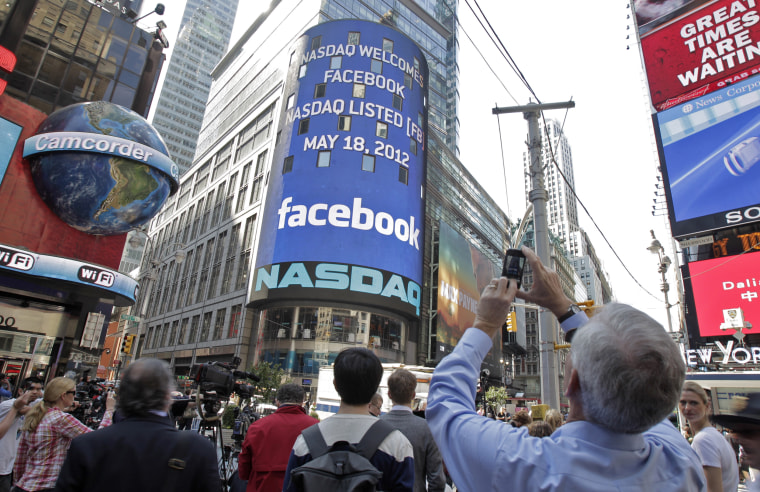Facebook’s disappointing second-quarter results pulled down the tech-heavy Nasdaq exchange on Thursday, with investors continuing to shed stock after the social media giant said Wednesday that it is facing declining revenue growth for the remainder of 2018 and that its daily active user count had fallen in Europe.
Facebook endured its worst day ever as a public company, after analysts called the quarterly results "startling," "disastrous" and "sobering." Shares closed down 19 percent, knocking more than $118 billion off the company's market value — the single biggest one-day loss in market value by a single company in history, according to data from CNBC.
The company's stock had initially fallen by as much as 24 percent in after-hours trading Wednesday. The bloodshed continued on Thursday, dragging down other tech companies including Snapchat and Twitter.
Facebook has faced withering pressure in the media, from users, and in Congressional hearings following the disclosure that third-party developers, notably Cambridge Analytica, were freely able to exploit the platform to harvest personal data on users and their friends without their full awareness.
"We're investing so much in security that it will significantly impact our profitability," CEO Mark Zuckerberg said during an earnings call late on Wednesday. "GDPR was an important moment for our industry. We did see a decline in monthly actives in Europe, down by about 1 million people as a result."
Information gathered by Cambridge Analytica was used by then-candidate Donald Trump's campaign and was also accessed in Russia. Fake pages and profiles run by Russian operatives were revealed after the election to have fomented division and spread disinformation during the 2016 U.S. presidential campaign.
To combat the problem, Facebook created 10,000 new positions, many in the content review department. The company has tried to use buzzy technologies such as artificial intelligence and machine learning to help identify and limit the reach of abusive content, but Facebook COO Sheryl Sandberg has said the robots still need a lot of help from humans to analyze the material.
Despite Thursday's stock market shakeup, Facebook is still massively profitable, and remains a go-to for advertisers who get great bang for their buck by using the platform’s tools to reach extremely targeted bundles of users.
However, it does mark the end of an era of wild growth for the company, coming harder and sooner than analysts had expected.
“We’re entering a new growth profile — going from hyper growth, greater than 40 percent, to just a growth story, 20 to 25 percent,” said Gene Munster, a tech analyst and managing partner of Loup Ventures.
"If this company wants to be a mega tech company in a decade, they need to make these changes today," he said.
